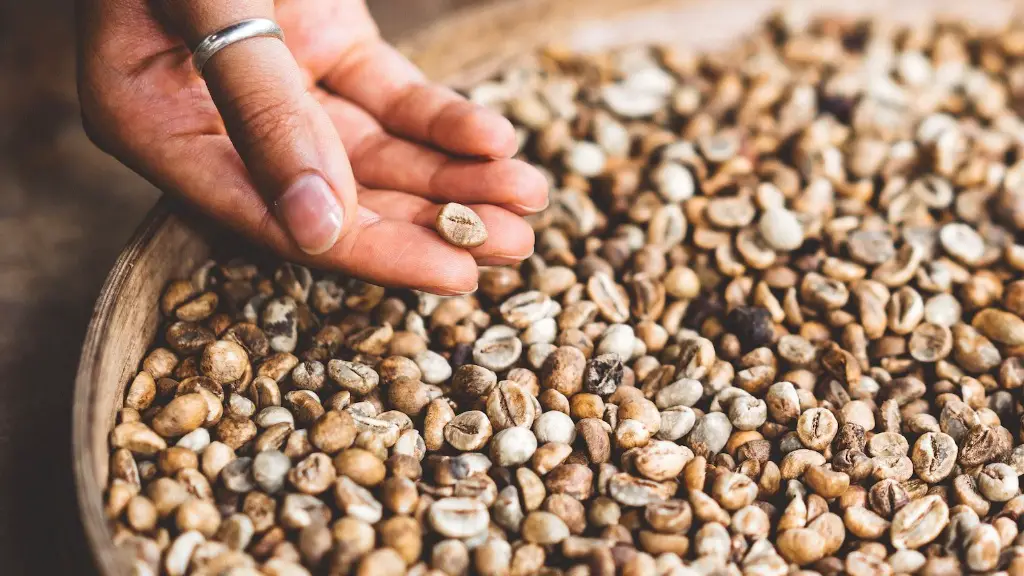Coffee is one of the most popular beverages in the world. People from all walks of life enjoy coffee for its invigorating quality and the hundreds of variations it offers. Some coffee enthusiasts even make it a part of their daily routine, drinking it every single day. But for all its benefits, what are the potential drawbacks of drinking coffee every day?
High levels of caffeine can cause a number of health issues, such as jitters, anxiety, headaches, and stomach pains. The body can build up a tolerance to caffeine, meaning that regular coffee drinkers will need more coffee over time to achieve the same effect. Furthermore, relying on caffeine to stay alert can lead to difficulty sleeping at night, continuing the cycle of needing more caffeine to feel awake. Unstable blood sugar levels can also be caused by too much caffeine, causing feelings of hunger and fatigue.
However, drinking coffee everyday in moderation can bring its own unique set of benefits. It can increase alertness, improve mood, and enhance cognitive function, making it beneficial to those that need concentration throughout the day. Since coffee also contains healthy antioxidants and nutrients, studies show that it may reduce the risk of dementia, diabetes, and certain types of cancer. Coffee also contains caffeine which could protect against cell damage and increase lifespan.
Coffee can also be an enjoyable experience for those that take their time to appreciate it. Different aroma, flavours, and textures can be played around with, allowing the drinker to adjust to their individual taste. Many cafes and coffee shops offer a wide selection of different coffee beans from all over the world, letting the customer explore and enjoy different varieties of coffee.
So, what happens if you drink coffee every day? Overall, it is important to understand the potential consequences of drinking coffee every day as well as the potential benefits. Understanding how our bodies react to caffeine is key to finding a balance between enjoying coffee responsibly, or moderating intake if it negatively affects us.
The Risk of Addiction
Addiction to caffeine has become increasingly common in modern society due to its wide availability. When repeatedly exposed to high levels of caffeine, the body can become dependent in order to produce the same amount of wakefulness. Think about it. Are you reaching for the same cup of coffee every day just to survive the morning? Caffeine sensitivity can vary from person to person, so it’s important to take note of your own physical and mental reaction to caffeinated beverages.
For some, the addiction to caffeine can become unbearable. Withdrawal symptoms include headaches, mood swings, and fatigue. After breaking free from addiction, it can be difficult to re-adjust to a life of no coffee. However, it is important to understand that this isn’t the only way to stay energized and focused. Eating a balanced diet and getting adequate sleep are crucial in keeping our bodies healthy and ready for the day ahead.
Coffee and Performance
Coffee can be a great tool for those looking for an extra push in their performance. While it isn’t a magical idea to rely solely on its benefits to thrive, many people reach for a cup of joe before studying for exams or engaging in other mentally-demanding activities. Taking the right amount of caffeine can help the user feel more energized, motivated and focused on the task at hand.
But beware – too much caffeine can cause a lack of focus, jitters, and negative thoughts. Finding the right balance of caffeine is essential in attaining the desired effects. Too much caffeine can make it difficult to come down from an energized, stressed out state, leading to a decrease in overall performance.
Aside from improving physical performance, caffeine has also been shown to have positive effects on mental strength. Caffeine consumption has been associated with the neuroprotective benefits and improved mental endurance, concentration and memory. As a result, incorporating coffee into a pre-workout routine can improve the user’s overall performance.
Healthy Alternatives to Coffee
If coffee becomes more of a challenge than a benefit to your daily routine, there are many healthy alternatives that could be taken into consideration. Turmeric and ginger are great for boosting the immune system and improving digestive health. Matcha green tea is rich in antioxidants and has calming properties, making it a great replacement for coffee. Yerba mate is another excellent substitute that provides the same amount of caffeine as a cup of coffee without the jittery effects.
Furthermore, for those who just want to enjoy the aroma and flavours of coffee without the caffeine, there are decaffeinated options that can be found in grocery stores, or you can make your own at home with decaffeinated beans. If you are used to drinking coffee every day, switching it up completely can be a great way to energize your mind body in a different way!
Coffee Culture
For many people, coffee has been a part of their daily ritual for years. It’s a reminder of the social connections made over a cup of coffee, and the enjoyment of having a ritual to end the day.
From exploring the world of exotic beans and trying out a variety of brewing methods, to sharing experiences and catching up with friends, coffee can be an excellent way to connect with people. With so many recipes and craft coffee shops out there, there’s something for everyone to celebrate and enjoy.
Drinking coffee can be enriching for both your body and mind. It can help bring focus, clarity and creativity to your work, all while providing a delightful and comforting experience.
Long Term Effects of Drinking Coffee
It can be difficult to determine the long-term consequences of drinking coffee every day. While an occasional cup of coffee or two may not have any considerable effects, drinking multiple cups daily can potentially lead to health problems in the long run.
Coffee can interfere with the absorption of certain minerals and vitamins, such as calcium, iron, zinc and vitamin B. These are essential for maintaining optimal health, and it is important to consider working other sources of these minerals into your diet.
Additionally, overconsuming coffee can decrease the effectiveness of certain medications, such as contraceptive pills, painkillers, and antibiotics. Therefore, it is important to check with your doctor before drinking coffee, as it is not recommended for people with medical conditions.
Moderation is Key
Enjoying coffee responsibly can provide many benefits, such as feeling energized, improved cognitive function and protection from cell damage. However, moderation is key in achieving these benefits. Too much can lead to addiction and many other health issues down the line. So, it is important to find the right balance and understand how your body reacts to coffee. Lastly, don’t forget to take time and appreciate the coffee culture – take in the different aromas and flavours, and explore the world of coffee with friends.




